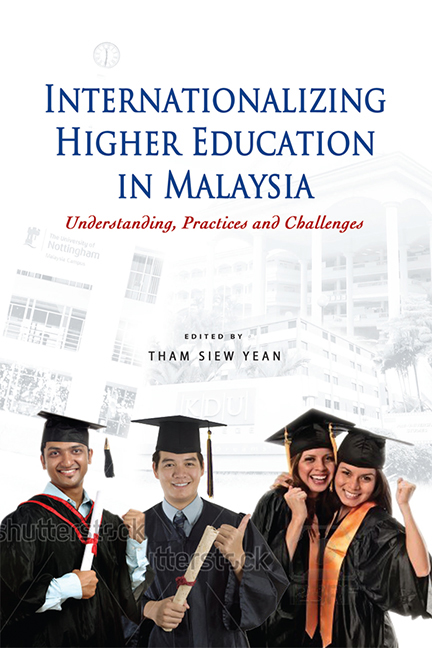Book contents
- Frontmatter
- Contents
- List of Tables
- List of Figures
- Preface
- Contributors
- 1 From the Movement of Itinerant Scholars to a Strategic Process
- 2 Towards Understanding the Internationalization of Higher Education and its Challenges
- 3 Public Universities: Development and Internationalization
- 4 Private Higher Education Institutions: Development and Internationalization
- 5 Macro Perspectives: Ideas, Practices and Challenges
- 6 Micro Perspectives: Ideas, Practices and Challenges
- 7 Concluding Remarks
- Index
3 - Public Universities: Development and Internationalization
Published online by Cambridge University Press: 21 October 2015
- Frontmatter
- Contents
- List of Tables
- List of Figures
- Preface
- Contributors
- 1 From the Movement of Itinerant Scholars to a Strategic Process
- 2 Towards Understanding the Internationalization of Higher Education and its Challenges
- 3 Public Universities: Development and Internationalization
- 4 Private Higher Education Institutions: Development and Internationalization
- 5 Macro Perspectives: Ideas, Practices and Challenges
- 6 Micro Perspectives: Ideas, Practices and Challenges
- 7 Concluding Remarks
- Index
Summary
INTRODUCTION
Since Independence, Malaysia has established twenty public institutions of higher learning that are entrusted with the major task of nation building. Initially they had a monopoly in student enrolment and the conferment of degrees but this monopoly was challenged in the latter half of 1996, when the Private Higher Educational Institutions Act 1996 was enacted allowing private higher education institutions to confer degrees. This chapter seeks to explain the development of public universities in Malaysia and their role and contributions towards the internationalization of higher education. It will focus on the following themes: the development of public universities; efforts to internationalize by these institutions and their rationales; as well as plans of action, strategies and measures that were adopted to realize the objectives of internationalization. It will only highlight the case of two of the twenty public institutions, namely Universiti Malaya (UM) and Universiti Kebangsaan Malaysia (UKM). Both universities, which were established under different historical and socio-political environments, are among the five universities in the country collectively categorized as research universities since 2006. UM, the oldest public institution of higher learning in the country, is an offshoot of two British colonial tertiary institutions. UKM was established as a national university in the post-independence era and the first university in Malaysia to use the national language, Bahasa Melayu, as the medium of instruction. Both UM and UKM are aggressively pursuing internationalization as leading research institutions of higher learning. These institutions are chosen as case studies for practical reasons. Access to data in the two institutions is relatively easy as the writer was previously employed in UM and she is currently employed in UKM. Data for the paper are based on both secondary and primary sources. The former includes documents such as the Annual Reports of the two institutions, reports from the Ministry of Higher Education (MOHE) and previous related studies. The latter relies on data collected through focus group discussions with faculty members, and interviews with the relevant officials engaged in the governance and administration of these institutions.
- Type
- Chapter
- Information
- Internationalizing Higher Education in MalaysiaUnderstanding, Practices and Challenges, pp. 41 - 65Publisher: ISEAS–Yusof Ishak InstitutePrint publication year: 2012



